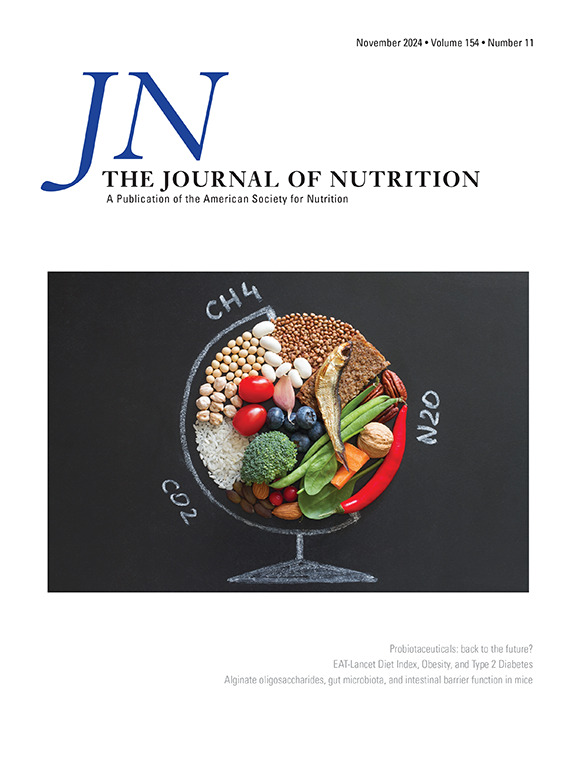益生菌药物:回到未来?
IF 3.7
3区 医学
Q2 NUTRITION & DIETETICS
引用次数: 0
摘要
豪沃斯(Howarth)在 2010 年发表的评论文章中推测,益生菌最终将被用作 "工厂",能够释放出具有治疗潜力的药物级代谢物,主要用于治疗各种胃肠道疾病(1)。事实上,对抗生素新替代品的不懈探索进一步推动了 "新一代 "益生菌的发展。后益生菌被定义为对宿主健康有益的无生命微生物和/或其成分,它仍然是当前益生菌研究的前沿,越来越多的益生菌物种、菌株和亚菌株正在被鉴定并作为药用生物制剂进一步开发利用;这些益生菌在健康和疾病方面的药理作用已得到证实,并在获得监管机构批准之前经过了临床试验。然而,在过去的 15 年中,最出人意料的益生菌发展可能是精神生物的出现,它们通过释放生物活性代谢物,有可能改善抑郁和焦虑等心理健康问题。此外,最近还发现了药用生物,即能够促进传统药物疗效的益生菌,这为益生菌应用于防治包括消化系统癌症在内的一系列疾病开辟了新途径。尽管尚处于起步阶段,但最近关于具有抗肿瘤特性的肿瘤生物的报道进一步扩大了某些下一代益生菌影响当前癌症治疗方案的潜力,甚至可能有助于预防癌症。展望未来 15 年的益生菌发展,我们或许可以预测,最终会开发出监管部门批准的异种益生菌制剂,其中的代谢物具有改善消化系统健康、降低肠道疾病严重程度、提高传统药物疗效的能力,同时还能改善认知功能和精神健康。虽然只是推测,但这些异种生物制剂可能被证明对癌症等严重慢性疾病的辅助治疗特别有效。本文章由计算机程序翻译,如有差异,请以英文原文为准。
Probiotaceuticals: Back to the future?
Probiotic research has undergone some exciting and unanticipated changes in direction since the 2010 commentary by GSH, which speculated on probiotics being ultimately utilized as “factories” capable of releasing pharmaceutical-grade metabolites with therapeutic potential for a wide range of primarily gastrointestinal disorders. Indeed, the unrelenting search for new alternatives to antibiotics has further stimulated the development of “next-generation” probiotics. Postbiotics, defined as inanimate microorganisms and/or their components that confer a health benefit on the host, remain at the forefront of current probiotic research, with increasing numbers of probiotic species, strains, and substrains now being identified and further exploited as pharmabiotics; probiotics with a proven pharmacologic role in health and disease that have been subjected to clinical trial prior to approval by regulatory bodies. However, perhaps the most unanticipated probiotic development over the past 15 y has been the emergence of psychobiotics with the potential to improve aspects of mental health, such as depression and anxiety, through the release of bioactive metabolites. Moreover, the recent identification of pharmacobiotics, probiotics capable of facilitating the effectiveness of conventional pharmaceutical drugs, is opening new avenues for probiotic applications to combat a range of diseases, including cancers of the digestive system. Although in its infancy, recent reports of oncobiotics with antineoplastic properties are further expanding the potential for certain next-generation probiotics to impact current cancer treatment regimens and possibly even contribute to cancer prevention. Looking to the next 15 y of probiotic development, one could perhaps predict the ultimate development of regulatory-approved xenopostbiotic formulations comprising metabolites with the capacity to improve digestive health, decrease the severity of intestinal disease, and increase the effectiveness of conventional pharmaceuticals, whilst simultaneously improving cognitive functioning and mental welfare. Although speculative, these xenopostbiotic formulations could prove especially effective for the adjunctive treatment of serious chronic diseases such as cancer.
求助全文
通过发布文献求助,成功后即可免费获取论文全文。
去求助
来源期刊

Journal of Nutrition
医学-营养学
CiteScore
7.60
自引率
4.80%
发文量
260
审稿时长
39 days
期刊介绍:
The Journal of Nutrition (JN/J Nutr) publishes peer-reviewed original research papers covering all aspects of experimental nutrition in humans and other animal species; special articles such as reviews and biographies of prominent nutrition scientists; and issues, opinions, and commentaries on controversial issues in nutrition. Supplements are frequently published to provide extended discussion of topics of special interest.
 求助内容:
求助内容: 应助结果提醒方式:
应助结果提醒方式:


